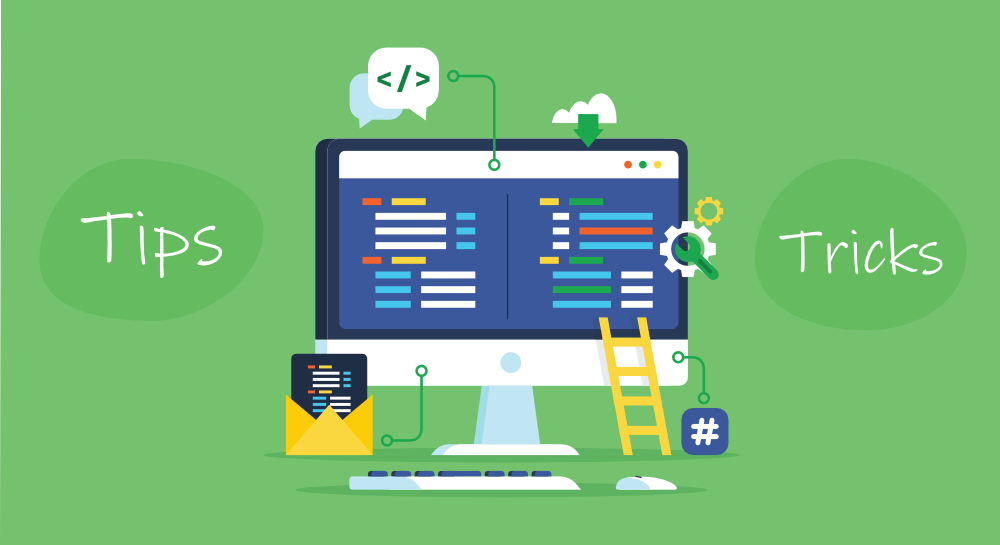Contents
- 1 1. Set Clear Goals
- 2 2. Start with the Basics
- 3 3. Utilize Online Resources
- 4 4. Practice Regularly
- 5 5. Join Online Communities
- 6 6. Take Structured Courses
- 7 7. Use Educational Software and Tools
- 8 8. Stay Updated with Technology Trends
- 9 9. Learn to Troubleshoot
- 10 10. Be Patient and Persistent
- 11 Conclusion
ozeku.com – In today’s digital age, computer skills are essential for personal and professional success. Whether you are a complete novice or looking to sharpen your existing skills, learning about computers can be a rewarding endeavor. Here are some effective tips to help you learn computers efficiently.
Read More: Crusader Kings III: Mengelola Dinasti dalam Era Pertengahan
1. Set Clear Goals
Before diving into the vast world of computers, it’s crucial to set clear, achievable goals. Determine what you want to accomplish with your computer skills. Are you interested in basic computer usage, programming, graphic design, or perhaps data analysis? Having specific goals will help you focus your learning and measure your progress.
Read more: Remnant: From the Ashes – Petualangan Dalam Dunia Pasca-Apokaliptik
Example Goals:
- Basic Skills: Learn how to use word processing software and manage files.
- Programming: Learn the basics of Python or JavaScript.
- Graphic Design: Become proficient in Adobe Photoshop or Illustrator.
2. Start with the Basics
If you are new to computers, start with the fundamentals. Familiarize yourself with the operating system, basic hardware components, and essential software applications. Understanding these basics will provide a solid foundation for more advanced topics.
Key Concepts to Learn:
- Operating Systems: Windows, macOS, or Linux.
- Basic Hardware: Understanding components like the CPU, RAM, hard drive, and peripherals.
- File Management: How to create, save, and organize files and folders.
Read More: Tips Bermain Tetris: Menguasai Permainan Puzzle Legendaris
3. Utilize Online Resources
The internet is a treasure trove of information and resources for learning computers. From free courses to video tutorials, there’s an abundance of materials available. Websites like Coursera, edX, Khan Academy, and YouTube offer excellent learning opportunities.
Recommended Platforms:
- Coursera: Offers courses from universities on various computer-related topics.
- Khan Academy: Provides free courses on computer programming and computer science.
- YouTube: A great resource for visual learners, with countless tutorials on every aspect of computers.
4. Practice Regularly

Like any skill, learning to use computers requires practice. Set aside dedicated time each week to apply what you’ve learned. Create projects or tasks that challenge your understanding and push you to explore new areas.
Read More: Tips Bermain Sudoku: Meningkatkan Kemampuan Pemecahan Masalah Anda
Suggested Practices:
- Create a Document: Use a word processor to write an essay or report.
- Build a Simple Website: Experiment with HTML and CSS.
- Learn Programming: Write simple programs or scripts in your chosen language.
5. Join Online Communities
Engaging with others who are learning can be incredibly beneficial. Join online forums, discussion groups, or social media communities related to computer skills. These platforms allow you to ask questions, share your knowledge, and learn from others’ experiences.
Popular Platforms:
- Reddit: Subreddits like r/learnprogramming and r/computers are great for advice and resources.
- Stack Overflow: Ideal for programming-related questions and troubleshooting.
- Facebook Groups: Look for groups focused on specific computer skills or software.
6. Take Structured Courses
If self-study is challenging, consider enrolling in structured courses. Community colleges, universities, and online platforms offer formal classes that guide you through the learning process step-by-step. Look for courses that offer certifications to boost your resume.
Course Suggestions:
- Computer Basics: Introductory courses on Microsoft Office or Google Workspace.
- Programming: Bootcamps focused on languages like Python, Java, or C++.
- Web Development: Courses that teach HTML, CSS, JavaScript, and responsive design.
7. Use Educational Software and Tools
Many educational tools can enhance your learning experience. Software like Codecademy, Duolingo (for coding), and Canva (for design) provide interactive learning environments that can make the process more engaging.
Recommended Tools:
- Codecademy: An interactive platform for learning programming languages.
- Canva: A user-friendly graphic design tool perfect for beginners.
- Scratch: A visual programming language aimed at beginners, especially younger learners.
8. Stay Updated with Technology Trends
The technology field is constantly evolving, and staying updated is crucial. Follow tech blogs, podcasts, and news websites to keep up with the latest developments. This knowledge can help you understand the context of what you are learning and inspire you to explore new areas.
Useful Resources:
- TechCrunch: Covers technology news and trends.
- Wired: Offers insights into how technology impacts society.
- Podcasts: Shows like “The Changelog” and “Software Engineering Daily” provide valuable insights.
9. Learn to Troubleshoot
As you learn, you will inevitably encounter problems. Developing troubleshooting skills is essential. Understanding how to identify and fix issues will not only enhance your learning but also build your confidence in using computers.
Common Troubleshooting Steps:
- Restart the Computer: Many issues can be resolved by simply restarting.
- Check Connections: Ensure all cables and peripherals are correctly connected.
- Research the Problem: Use forums or search engines to find solutions to specific errors or issues.
10. Be Patient and Persistent
Learning computers can be challenging, especially if you’re starting from scratch. Be patient with yourself and don’t get discouraged by setbacks. Persistence is key; the more time and effort you invest, the more proficient you will become.
Tips for Maintaining Motivation:
- Celebrate Small Wins: Acknowledge your progress, no matter how small.
- Mix It Up: Vary your learning methods to keep things interesting.
- Set Milestones: Create a timeline for your learning goals to help you stay on track.
Conclusion
Learning computers is a valuable skill that opens doors to various opportunities. By setting clear goals, utilizing online resources, practicing regularly, and engaging with communities, you can enhance your computer skills effectively. Remember, patience and persistence are essential. Embrace the journey, and soon you will find yourself confidently navigating the digital landscape. Happy learning!




